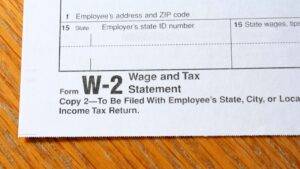
Article at a Glance:
- Coronavirus-related Distributions Still Available
- Withdrawals can be paid back to the plan within 3 yrs. and aren’t subject to the 10% penalty for early distribution – special treatment only available for $100,000 or less
- The person affected by COVID-19 could be the taxpayer, spouse, or someone that resides with them
- Withdrawing money from a retirement plan at a younger age can severely affect long-term retirement funds
The CARES Act allowed individuals affected by COVID-19 to withdraw amounts from their retirement plans at any time during 2020. It even permitted amounts taken before enactment to be treated as Coronavirus-related distributions.
SPECIAL TREATMENT CAVEAT – $100,000
Withdrawals could be paid back to the plan within three years and were not subject to the 10% penalty for early distribution – but the special treatment was only available for $100,000 or less in withdrawals. Most retirement plan withdrawals are taxable, but these amounts were brought into income one-third per year for 2020-2021-2022. Notice 2020-50 provided the IRS explanation of the provisions and expanded the category of those eligible.
COVID-19 QUALIFICATIONS
The person affected by COVID-19 could be the taxpayer, spouse, or someone that resides with them. They didn’t have to suffer from the virus. They just had to suffer a job loss, income loss, or lose out on a job because of the pandemic. Also, the taxpayer self-certifies that they qualify and the form for doing that is part of the IRS notice. The withdrawals were also available from qualified plans if the employer chose to offer them. The notice indicates that the special tax treatment may still be available when the employer doesn’t adopt the provisions.
LONG-TERM RETIREMENT CONCERNS
When CARES was first enacted, many received enhanced unemployment benefits and didn’t avail themselves of this benefit. As gridlock in Congress continues, it may be necessary for some individuals to withdraw funds in this way. Withdrawing money from a retirement plan at a younger age can severely affect long-term retirement funds, but desperate times call for desperate measures. Recommend this only if you thoroughly explain to your client all of the downsides.
Recent Stories


Trump Executive Order Directs Cannabis Rescheduling

Trump Accounts and New Form 4547


The ACA Enhanced Subsidy Expires





